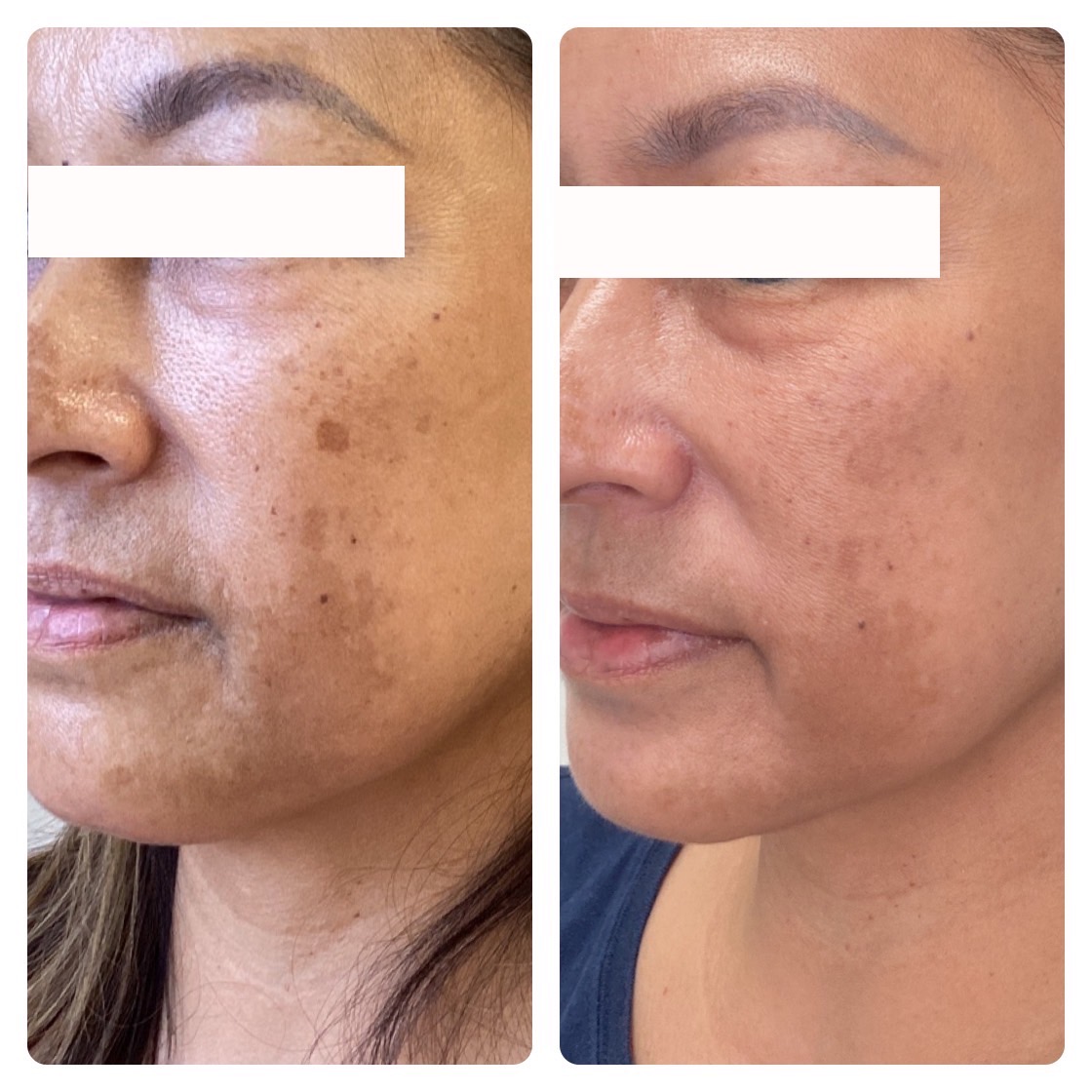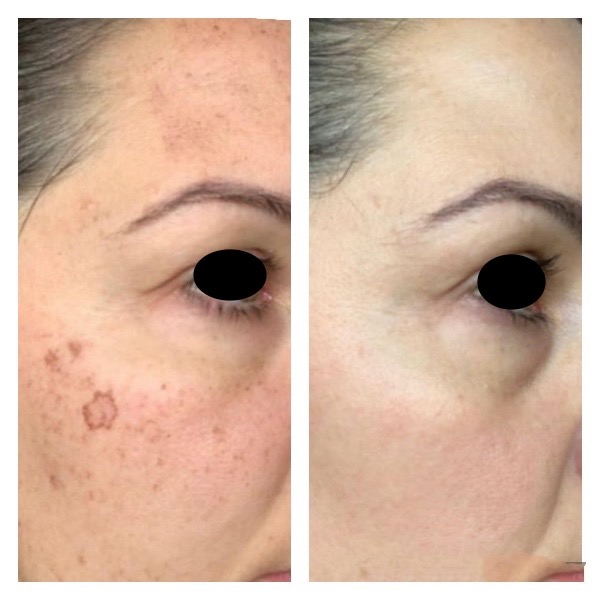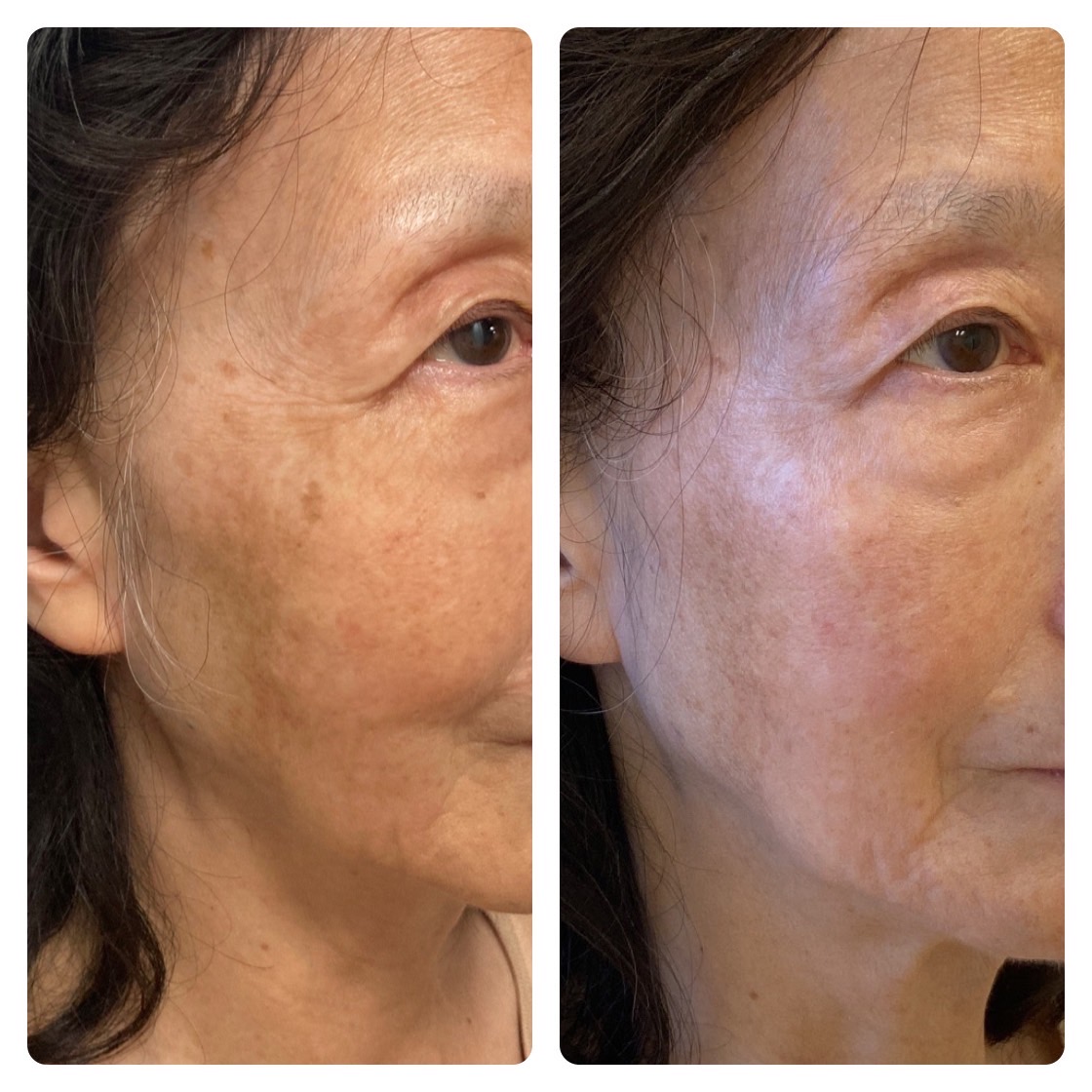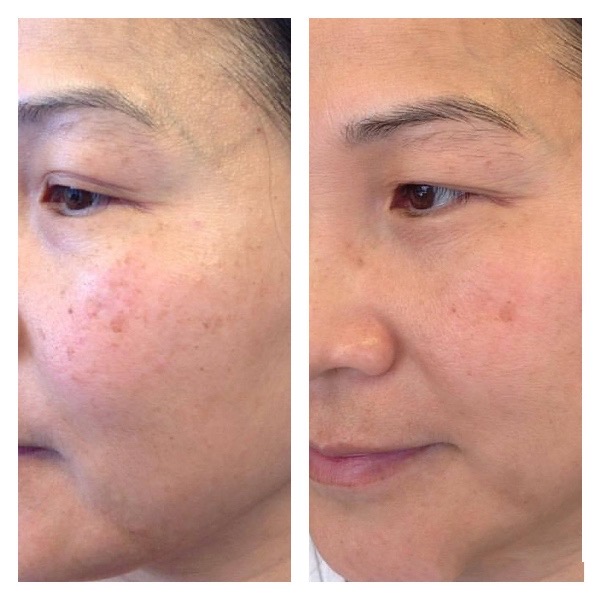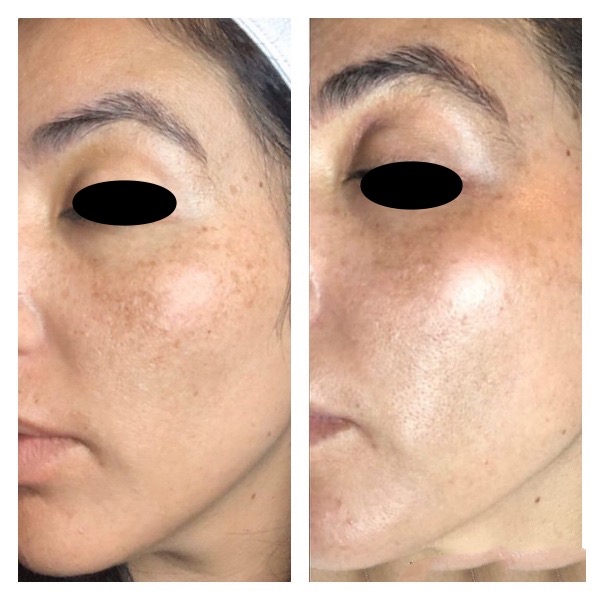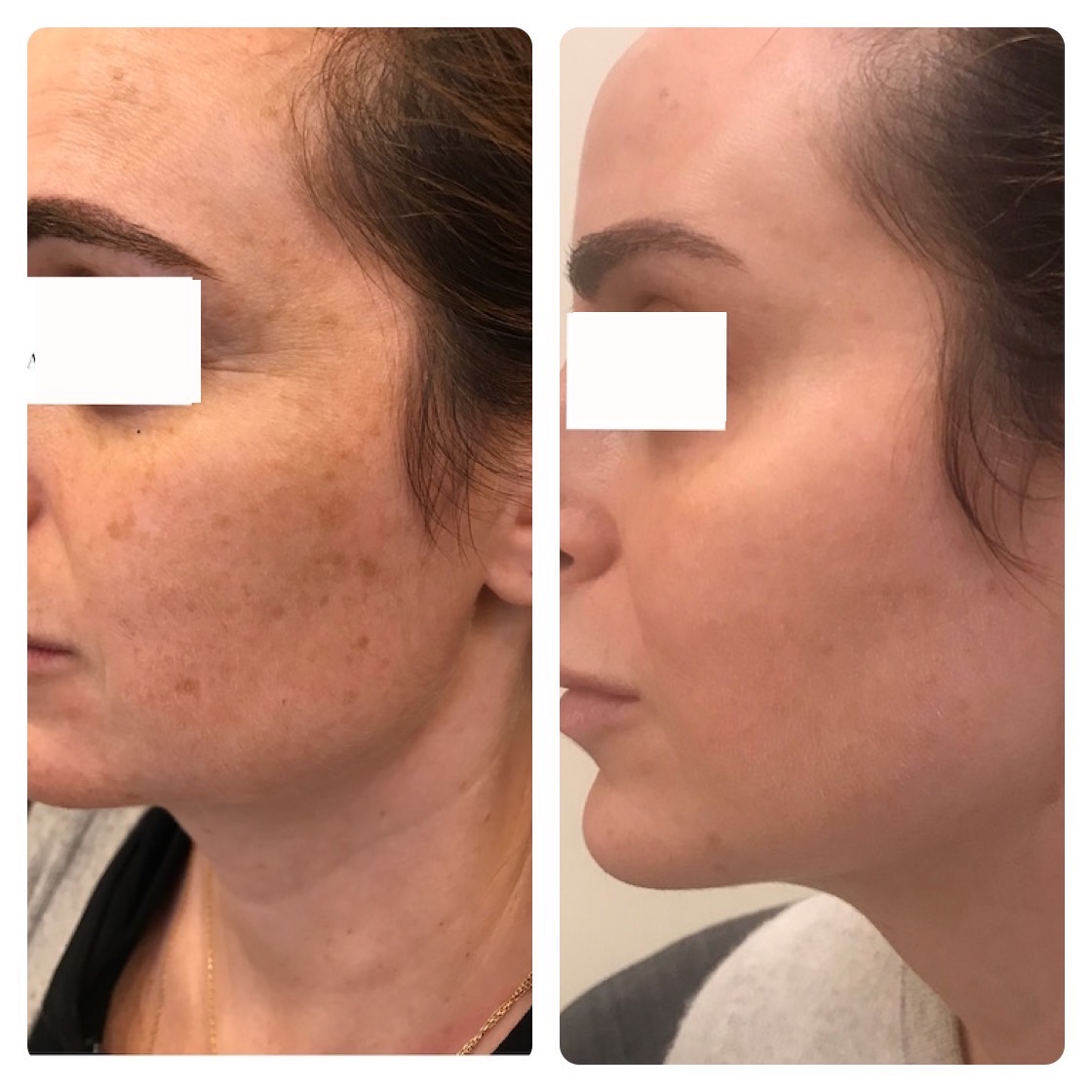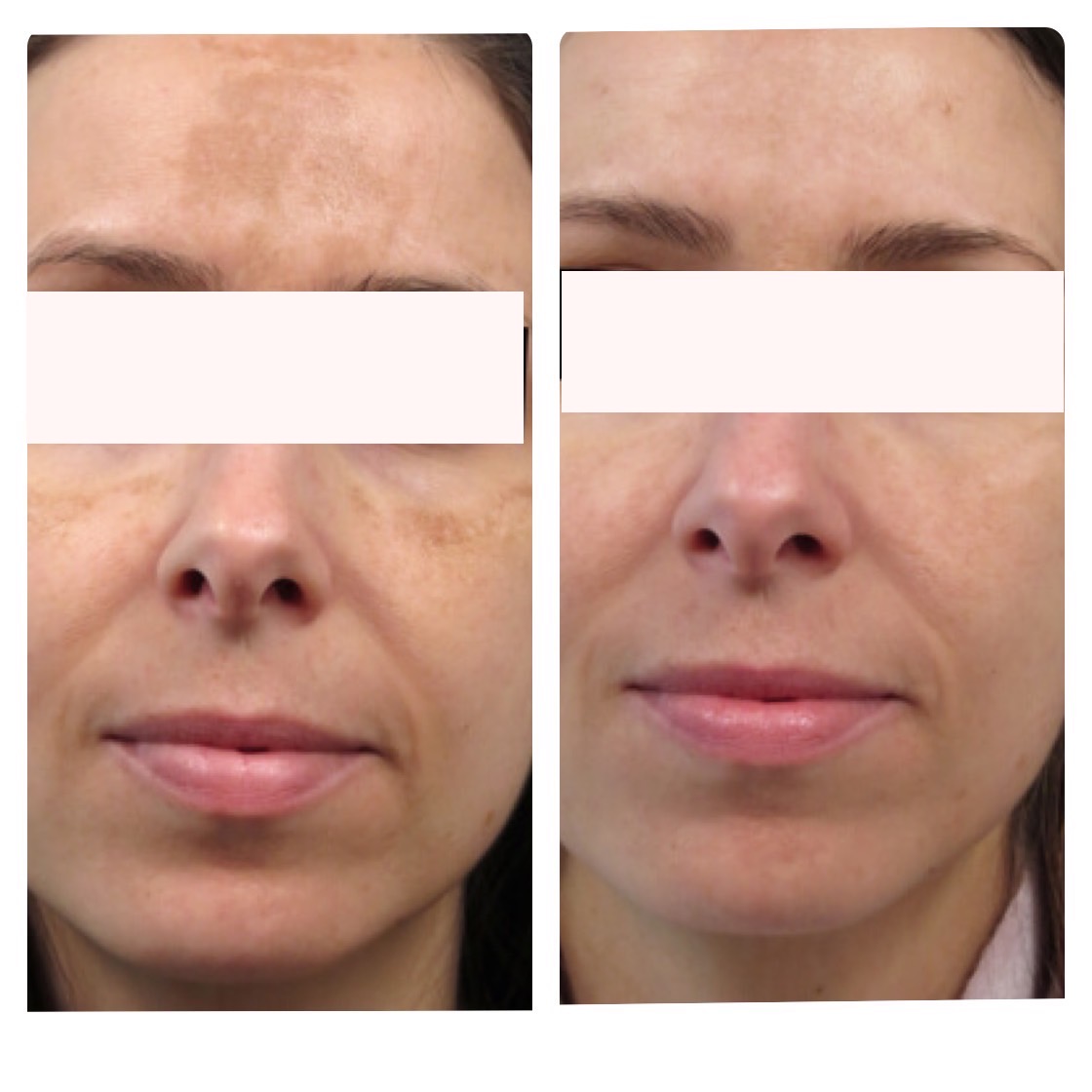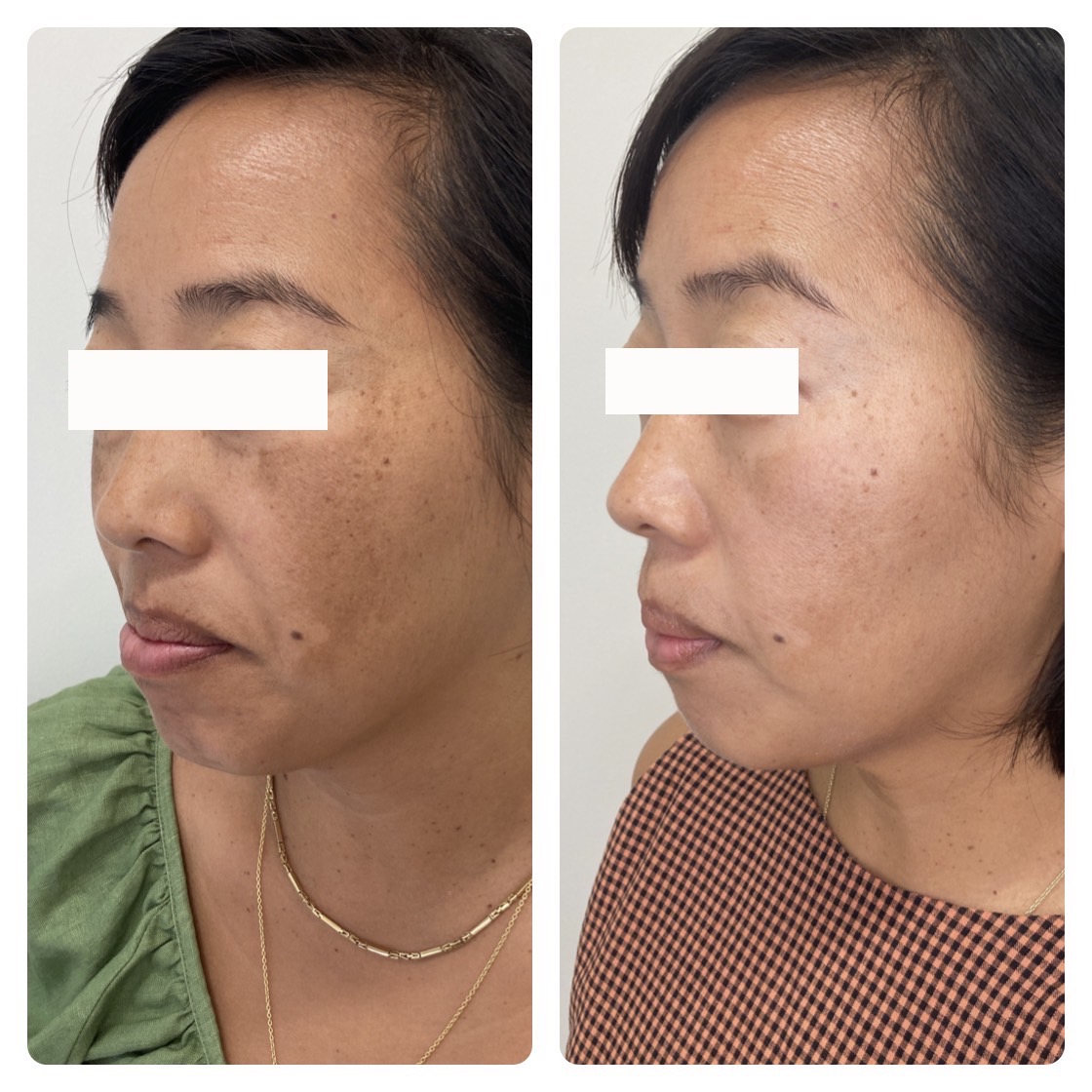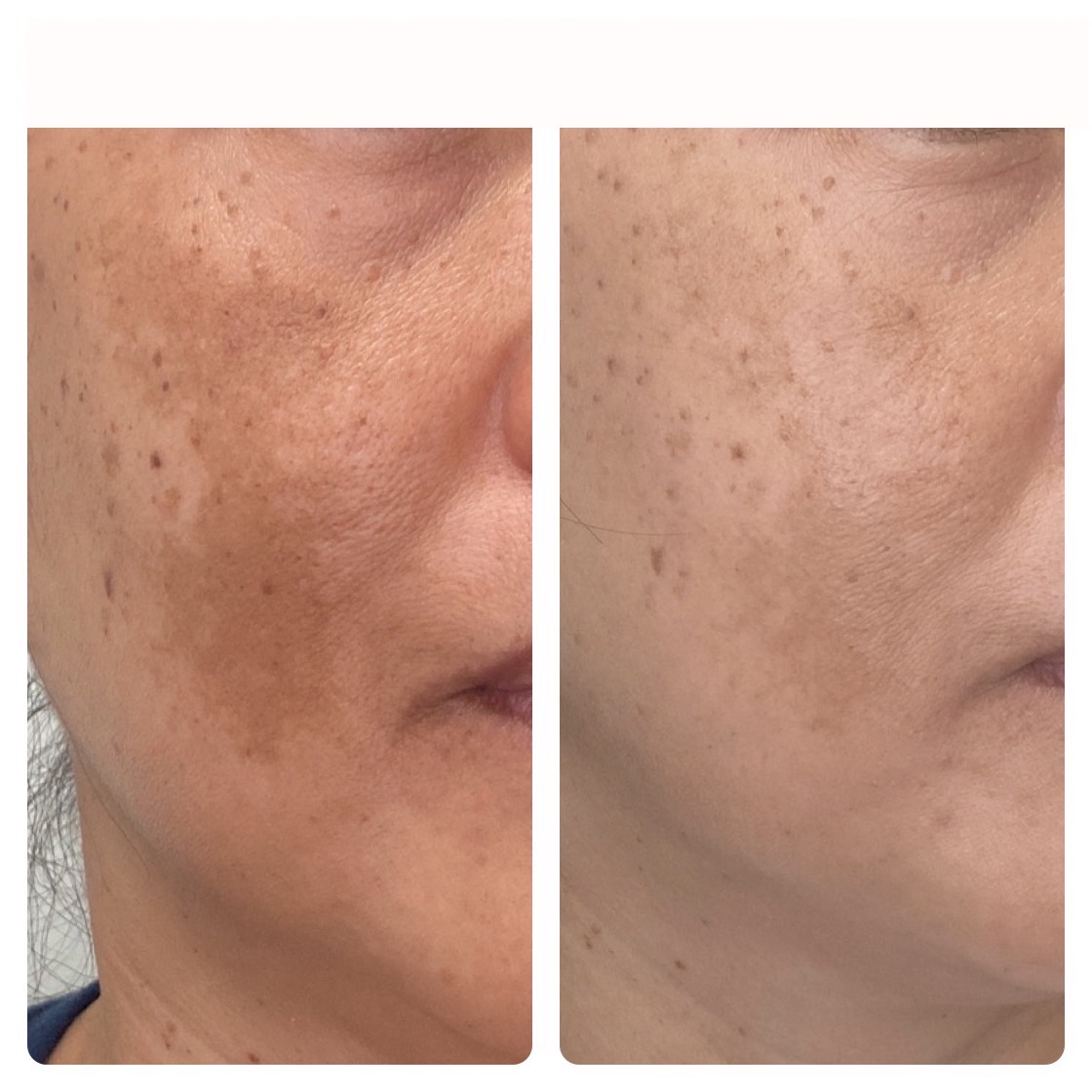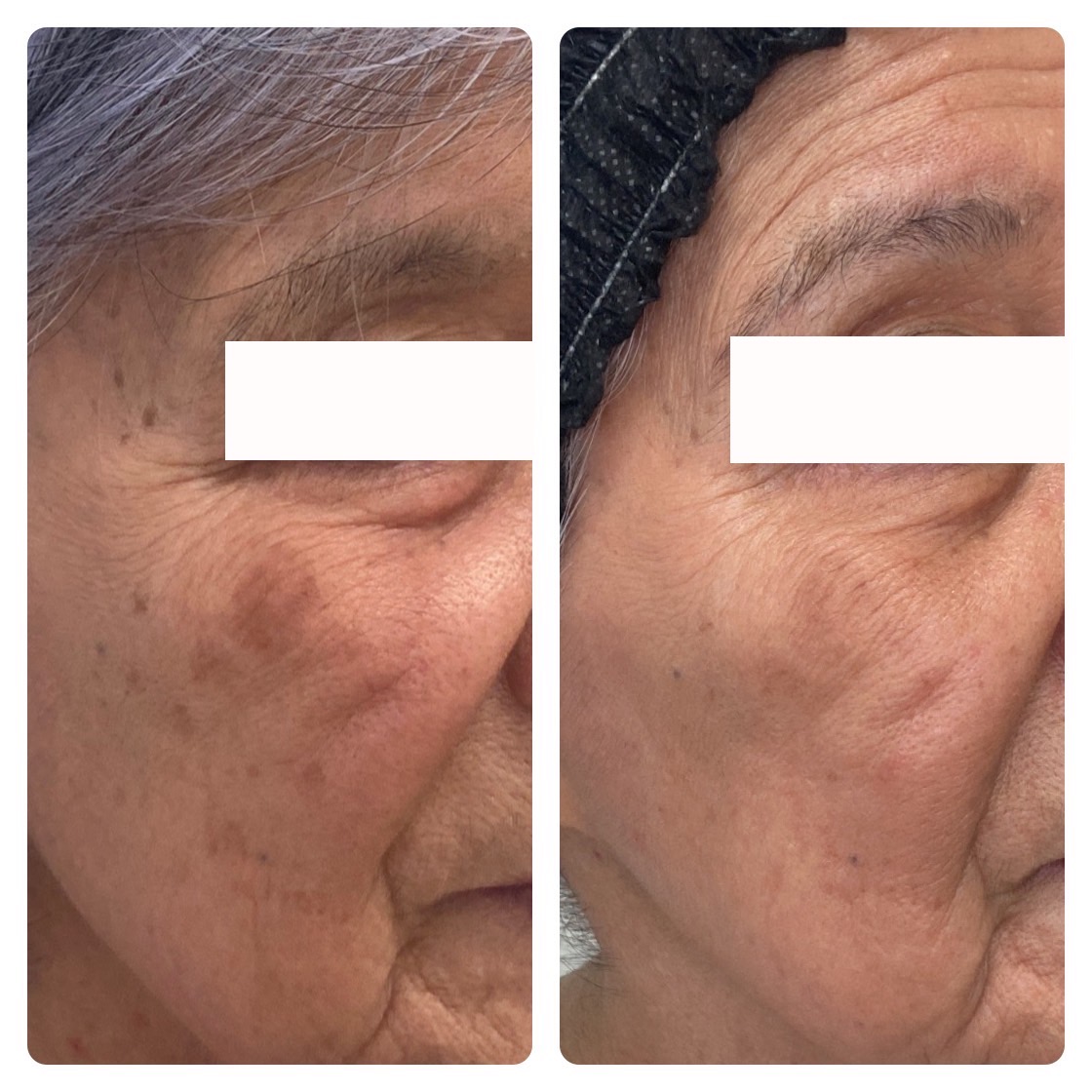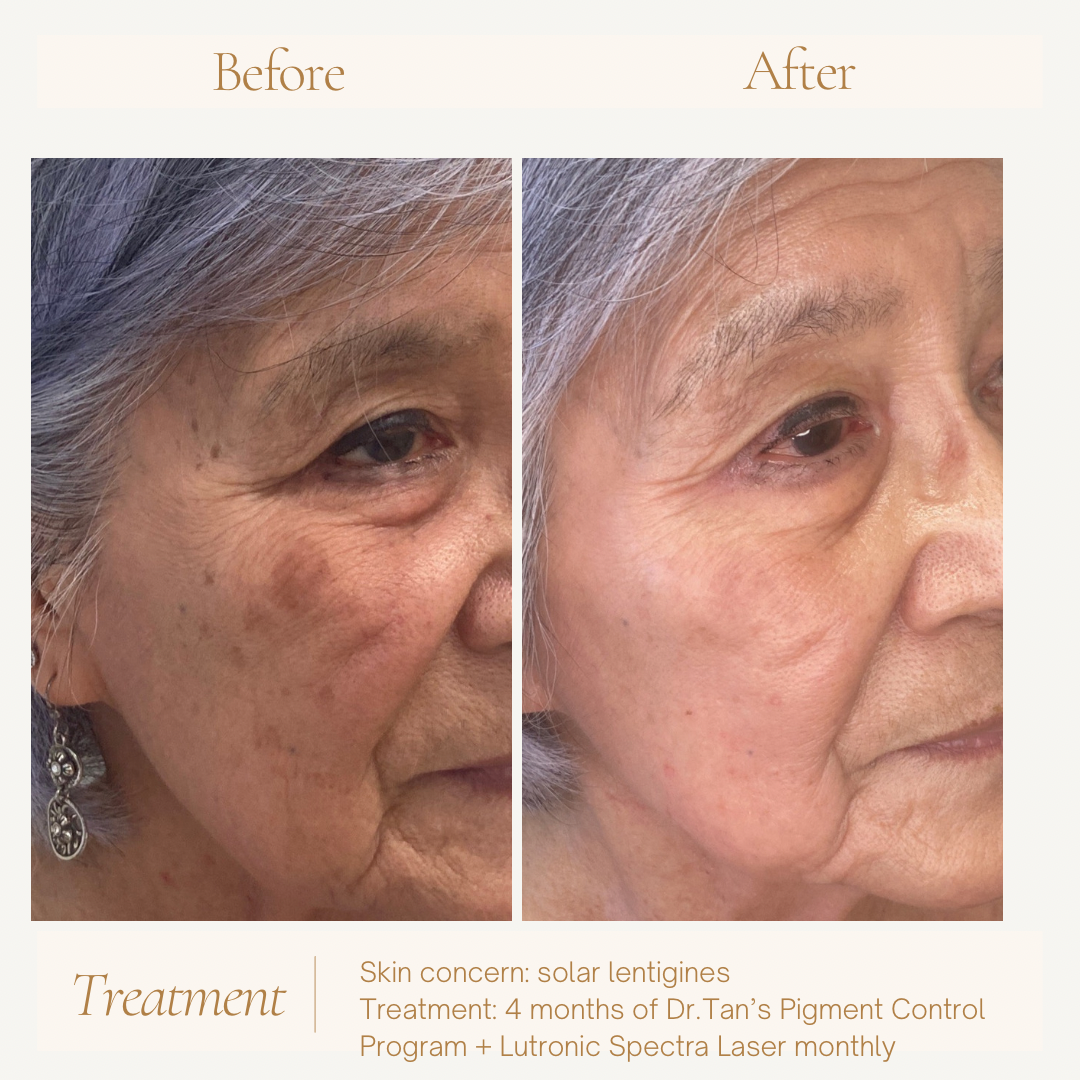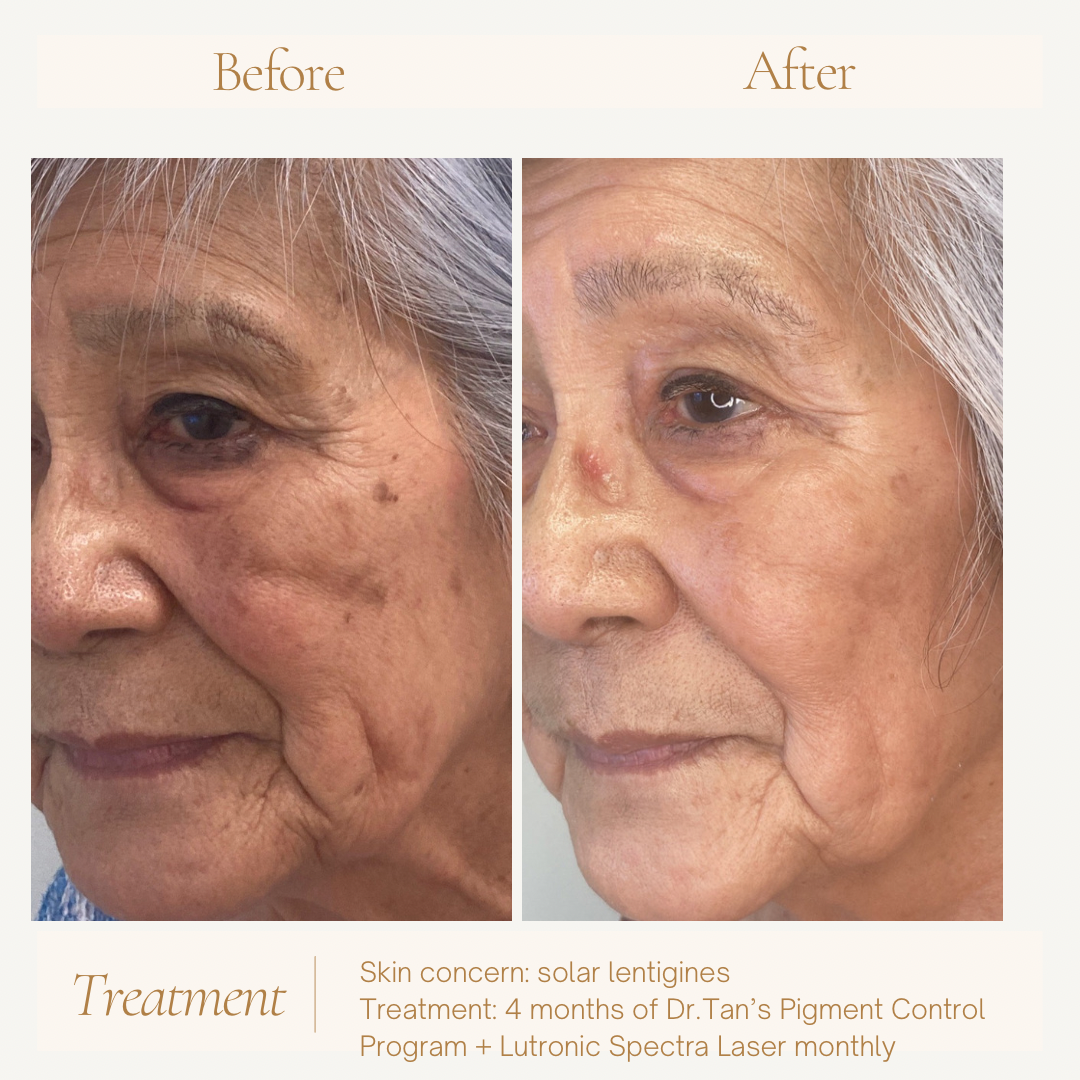MELASMA & HYPERPIGMENTATION
Melasma is a skin condition characterized by brown or blue-gray patches or freckle-like spots. It’s often called the “mask of pregnancy.” Melasma happens because of overproduction of the pigment cells that make the color of your skin. It is common, harmless yet stubborn condition. If you’re looking to improve your skin overall including texture and even out your skin tone, Dr. Tan can help you with a treatment plan that can help diminish unwanted epidermal and dermal pigment, plus restore skin radiance.
Melasma may go away on its own. This usually happens when a trigger, such as pregnancy or a medication, causes melasma. Melasma can also last for years, or even a lifetime. While melasma cannot harm your body, it’s understandable that many people want to treat it. Read More About Melasma Treatment Options.
There is no one best treatment for melasma
Often, the most effective treatment combines sun protection with prescription strength skincare treatment that you apply to your skin — and in conjunction with in office treatments.
If you decide to treat melasma, Dr. Tan can help to create a treatment plan tailored to your needs. This means your plan will consider your skin tone, how deeply the melasma reaches into your skin, and any melasma triggers you may have. Sunlight, taking birth control pills, and even stress can trigger melasma.
The goals of treatment are to:
- Decrease how much pigment your body makes.
- Even out your skin tone, restoring it to your natural color.
To achieve these goals, a treatment plan often consists of:
Sun protection: Sunlight causes the skin to make more pigment, which can darken existing melasma and cause new patches. Sun protection often involves wearing a wide-brimmed hat while outdoors, seeking shade, and applying a broad-spectrum sunscreen (SPF 30 or higher) throughout the day.
Medication: Dr. Tan may prescribe a medication that can decrease the excess pigment in your skin (topical and/or oral). Most patients receive a prescription for medication that they apply to their skin at home.
It may include one or more of the following:
- Hydroquinone: This is a common treatment for melasma. It is applied to the skin and works to even out the skin tone. Hydroquinone is no longer available in products that you can buy without a prescription.
- Tretinoin and a mild corticosteroid: This combination contains a retinoid and an anti-inflammatory, which can even out skin tone.
- Triple combination cream: This cream contains three medications — tretinoin (a retinoid), a corticosteroid to reduce inflammation, and hydroquinone to even out your skin tone.
- Other medications: For cases of refractory melasma, Dr. Tan may prescribe a oral medication that can help inhibit the production of melanin (skin pigment) and transfer of pigment to the topmost lyer of the skin.
To improve your results, Dr. Tan may add one or more of the following to your treatment plan:
- Chemical peel: During this procedure, we apply a chemical solution to the melasma. This can help remove excess pigment.
- Microneedling: This minimally invasive procedure intentionally create microscopic trauma in your skin. As the skin heals, it tends to have a more even skin tone.
- Laser and light treatments: A few studies have found that adding a laser or light treatment can improve results for patients who are already applying medication to their skin and protecting their skin from the sun. Dr. Tan has the only FDA approved laser treatment for melasma, the Lutronic Hollywood Spectra.
Only a board-certified plastic surgeon or dermatologist should perform the above procedures. Getting the desired results requires in-depth knowledge of the skin. Dr. Tan has the training required to select the right procedure for each patient, counsel you on what to expect, and perform the procedure safely.
Results take time
When you follow your treatment plan, it usually takes between 3 to 12 months to see results. It may take longer if you’ve had melasma for a long time.
Discover Our Results
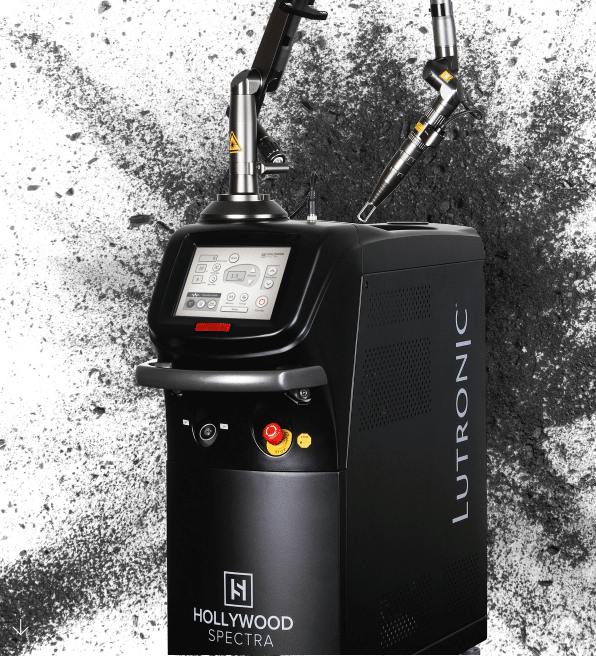
FDA Approved Laser Treatment For Melasma
Lutronic Hollywood Spectra is the world’s leading 1064/532nm laser platform with proprietary capabilities to reduce unwanted pigmentation and restore glowing skin. It is the first short-pulse laser to earn FDA clearance for treating melasma. Its advanced technology is the perfect avenue to lighten and brighten complexions, treat stubborn pigmentations and uniquely perform the popular Hollywood Laser Peel. Hollywood Spectra leverages a proven reliable performance record worldwide and can effectively treat a full spectrum of patient skin colors and types. With its unmatched short pulse widths and high peak power, it can help deliver safe and effective treatments with minimal downtime.
Key Beneifts
- Shortest true nanosecond pulse width (5ns) for improved efficacy with less downtime
- 1064/532nm wavelengths for wide range of pigmentation treatments including freckles, solar lentigines hyperpigmentation, melasma, seborrheic keratosis and tattoo
- Exclusive Spectra mode (0.3 ms) enables the patented Hollywood Laser Peel®
- HyperSurge™ Resonator and IntelliBeam™ help deliver quality and efficacy
- 1st short-pulse laser to earn FDA clearance for treating melasma
- Powerful versatility to reduce unwanted pigmentation
FAQ
How does Lutronic Hollywood Spectra treatment work?
The non-thermal laser doesn’t cause damage to the surrounding tissue. It destroys the pigment, leaving skin clearer and creating a more even complexion.
How do I prepare for treatment?
Avoid sun exposure & tanning products and discontinue the use of harsh skincare products like peels and scrubs.
When will I see results and how long will the results last?
You may see results after 1 to 2 sessions for sun spots, hyperpigmentation and freckles. Certain, more severe conditions like melasma may require additional sessions. Results are permanent, as long as effort is taken to maintain a clear complexion and prevent new spots of hyperpigmentation, like applying broad-spectrum sunscreen when exposed to the sun and managing conditions like acne or eczema.
Does Lutronic laser treatment hurt?
The Lutronic Hollywood Spectra™ laser procedure feels like a quick rubber band snaps against your skin. No topical numbing is needed.
Is there any downtime for Lutronic laser treatment?
There may be some slight flaking or swelling with the procedure, but in most cases, there is no downtime.
Selecting A Facial Plastic Surgeon For Your Treatment
Under Dr. Tan’s care, many people with melasma have a good outcome. Melasma can be stubborn, though. It may take a few months of treatment to see improvement. It is important to follow Dr. Tan’s advice. This ensures that you get the most benefit from treatment. It also can help avoid skin irritation and other side effects. Melasma is typically a chronic condition that can last for long durations and is generally unstable, causing it to surface from time to time. Therefore, melasma needs to be addressed with a regimen of long-term proper treatment and care.


